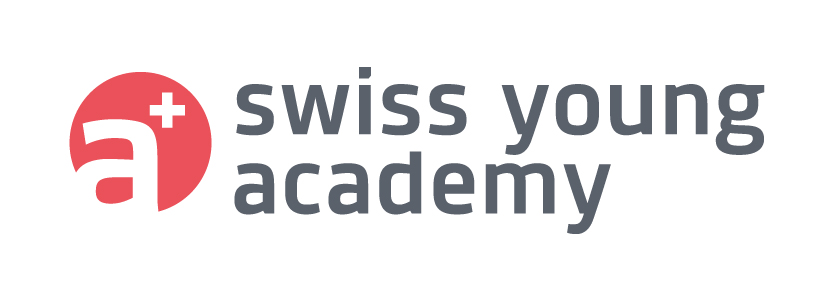Networking science.
Emmanuel Clédat, a realistic Utopian

He looks more like a Hawaiian surfer than an assistant-doctoral student in the topometry laboratory at the Swiss Federal Institute of Technology in Lausanne (EPFL). Emmanuel Clédat arrives at the meeting place by bike. Purple tank top showing off his biceps, very long, flowing hair, and intense, sparkling blue eyes. The first impression is one of relief: he looks approachable for a photogrammetry specialist.
The 29-year-old scientist discovered the existence of the Swiss Young Academy by chance. As a cycling enthusiast, he at once saw it as a source of funding for a project that is dear to his heart: mapping urban traffic, quantifying the very real dangers to which cyclists are exposed and producing rigorous statistics in order to improve road infrastructure, accident prevention campaigns and the behaviour of cyclists and other road users. It was on the strength of this project – which aims at promoting a dialogue between science and society – that he was selected by the Young Academy.
When freshly elected, he was surprised to discover the diversity of the members. He sees this skills network as an advantage for carrying out multidisciplinary projects. “The conclusion of one expert in one field is the starting-point for another. And I hope that the research carried out in this institution will be conducted with great cohesion between all the links in the chain.” He takes his project as an example: “Personally, working with sociologists – behavioural specialists – will help me make links that I wouldn’t have thought of making myself.”
“Personally, working with sociologists – behavioural specialists – will help me make links that I wouldn’t have thought of making myself.”
This measurement expert has a taste for making the world a better place. “At the Young Academy, I hope that working among young people will enable us to approach problems in a different way: that we will go against the technocratic vision that is far too widespread in scientific circles. For example, we must not invent a greenwashing ad to sell a technology that is presented as being able to save the world.”
Emmanuel Clédat illustrates his point with an example he describes as “caricatured”, but “sadly realistic”. “Let's take a fashionable technology: the drone.” The subject is timely: the researcher knows a lot about it, he’s just finished his thesis on how to improve drone mapping. As part of his doctoral programme in civil and environmental engineering, he has developed software capable of accurately processing the data collected by various sensors on board a drone. The inhabitant of Morges has even received the best young author award from the International Society for Photogrammetry and Remote Sensing (ISPRS) 2020 for a publication resulting from his thesis.
“What more can be done with drones,” he asked. “Make flying cars, for example. Once the machine has been developed, it has to be commercialized. It would be completely hypocritical to pretend to defend the case against global warming in ads for a flying car since it's ecological nonsense.”
"Technology, sociology, philosophy and any other discipline must serve the world we want to live in, not the other way around.”
For Emmanuel Clédat, the Young Academy will have to ask itself the right questions: “What kind of a world do we want to live in? What kind of a world do we want to create? If we take the problem of global warming, what path do we want to go down to arrive in a viable world in 2050? Technology, sociology, philosophy and any other discipline must serve the world we want to live in, not the other way around.”
Far from being naive, he relativizes things: “Of course, a fine narrative will not result in a magnificent world in 2050. It’s not enough to have utopias. We have to make sure they do not degenerate into dystopias. How can we not forget some of the utopias that led to dictatorships?”
For the next stage of his career, he confided that he definitely plans to fulfil his bike project: “But that won’t prevent me from doing a second project with another member.”
Biography
Emmanuel Clédat, born on 4 May 1991 in Tarbes (F), lives in Morges (VD). Graduated from the National Institute of Applied Sciences, Strasbourg (F) in the special subject Topography
2014-2015
Exchange programme (Erasmus type), at the Swiss Federal Institute of Technology, Lausanne (EPFL)
Master thesis: “Designing a consolidation method for large lasergrammetric networks", EDF, Clamart (F)
From 2016
Assistant-doctoral student in the topometry laboratory, EPFL. Doctoral programme in civil and environmental engineering. Thesis: “On the adjustment, calibration and orientation of drone photogrammetry and laser-scanning”. Participation in teaching for the course on compensation, Geomonitoring and cross-disciplinary teaching in the Architecture, Civil and Environmental Engineering sections.
From 2017
Member of the board of the French Topography Association and of the committee of its journal XYZ
From 2018
Member of the beekeeping group of the UniPoly association (on the UNIL-EPFL campus)
Swiss Young Academy
House of Academies
Laupenstrasse 7
P.O. Box
3001 Bern
Switzerland
